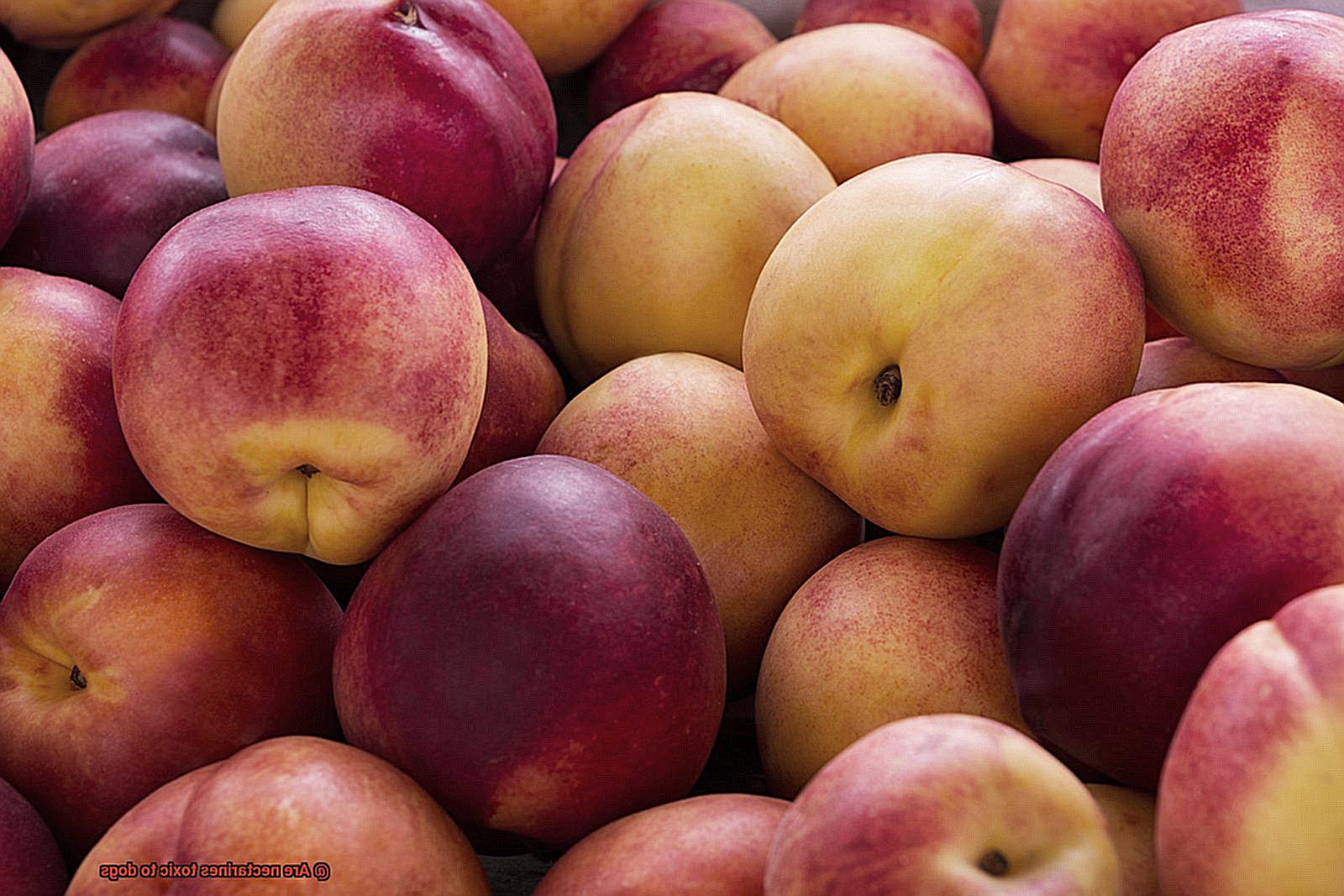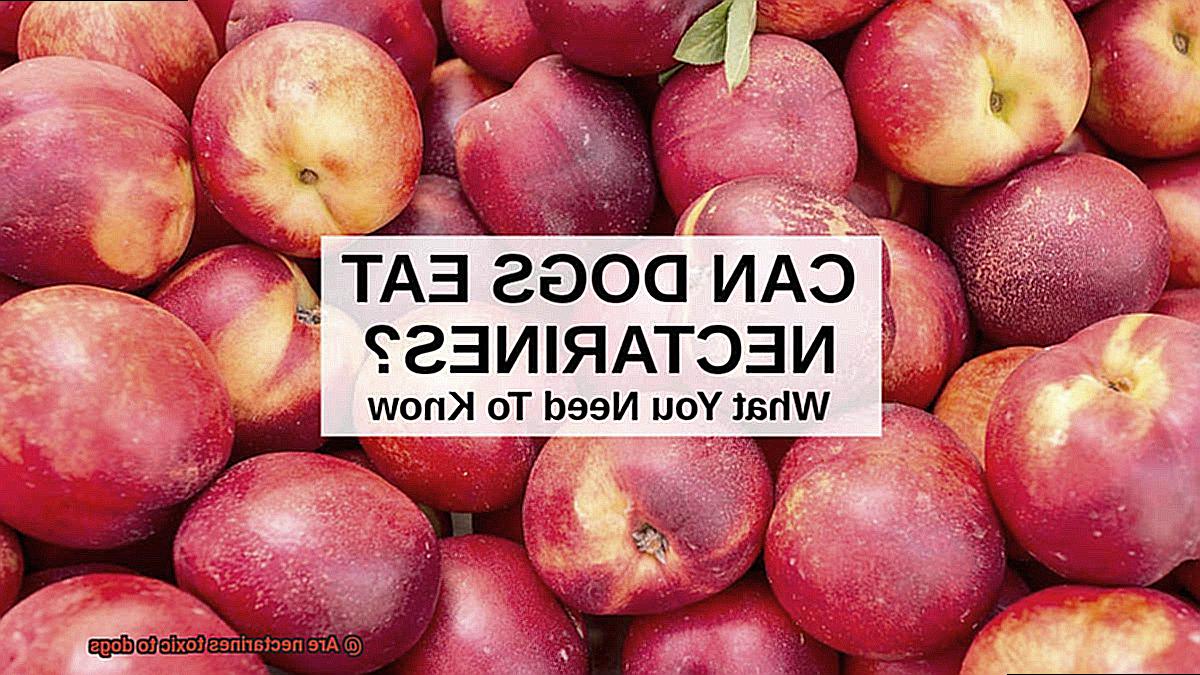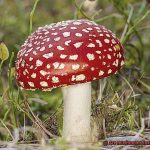Are nectarines toxic to dogs?
We all want what’s best for our furry buddies, right? And that includes being careful about the food we give them. Now, picture this: a juicy nectarine on a hot summer day, its sweetness bursting in your mouth. But hold up. Did you know that these delightful fruits might just be a no-no for our beloved dogs? Yep, even though they look innocent, nectarines can pack some hidden dangers.
In this blog post, we’re diving deep into the potential toxicity of nectarines for our four-legged pals. We’ll spill the beans on why these stone fruits could spell trouble, clue you in on the signs to watch out for if your dog gets their paws on one, and dish out some essential guidelines to keep your fur baby safe and sound.
So come along as we peel back the layers of this fruity mystery and explore whether nectarines and dogs are a match made in heaven or a recipe for disaster. Let’s get started.
The Potential Dangers of Nectarines for Dogs
Contents
- 1 The Potential Dangers of Nectarines for Dogs
- 2 Understanding Amygdalin in Nectarines
- 3 Symptoms of Cyanide Poisoning in Dogs
- 4 How to Safely Feed Nectarines to Your Dog
- 5 Moderation is Key When Giving Nectarines to Dogs
- 6 The Risks of Not Monitoring Your Dog’s Consumption of Nectarines
- 7 Different Reactions to Nectarines Among Dogs
- 8 Consulting with a Veterinarian Before Introducing New Foods to Your Dog’s Diet
- 9 Conclusion
As a French Bulldog owner, you may be wondering if it is safe to share your nectarines with your furry friend. While nectarines are a delicious and nutritious fruit for humans, they can pose potential dangers to dogs if ingested. As an expert in this field, I want to share my knowledge and insights about the potential risks associated with nectarines for dogs like French Bulldogs.
The primary concern with nectarines and dogs lies in the seeds or pits. These pits contain a compound called cyanide, which is toxic to both humans and animals. If your French Bulldog accidentally ingests a nectarine pit, it can lead to cyanide poisoning. Symptoms may include difficulty breathing, dilated pupils, bright red gums, vomiting, diarrhea, weakness, and even seizures. In severe cases, cyanide poisoning can be life-threatening for dogs.
To prevent such incidents from occurring, it is crucial to keep nectarines and their pits out of your French Bulldog’s reach. Be mindful of where you store your nectarines and dispose of the pits properly. Additionally, avoid feeding your dog any part of the nectarine, including the flesh, as it can still contain traces of cyanide.
Apart from the risk of cyanide poisoning, nectarines can also pose a choking hazard to dogs. The pit is hard and can get lodged in your French Bulldog’s throat or digestive tract, potentially requiring surgical intervention. Therefore, it is essential to never give your dog access to nectarine pits.
Furthermore, nectarines are high in sugar content. While a small amount as an occasional treat may not cause harm, excessive consumption can contribute to weight gain and other health issues such as diabetes in dogs. Remember that moderation is key when it comes to sharing fruits with your French Bulldog.
To ensure the safety and well-being of your French Bulldog, it is important to be aware of these potential dangers associated with nectarines. Always keep nectarines and their pits out of reach, dispose of them properly, and monitor your dog’s behavior and health after any accidental ingestion.
If you suspect that your French Bulldog has ingested nectarine pits or is exhibiting any symptoms of cyanide poisoning, seek immediate veterinary care. A professional can provide the necessary treatment and guidance based on your dog’s specific situation.
Understanding Amygdalin in Nectarines
French Bulldogs are beloved pets known for their adorable personalities and distinctive appearance. As responsible dog owners, it’s important to be aware of the potential risks associated with feeding nectarines to our furry friends, especially when it comes to their amygdalin content.
What is Amygdalin?
Amygdalin is a naturally occurring compound found in certain fruits, including nectarines. It is also known as vitamin B17 and is commonly associated with its presence in apricot kernels. However, it’s important to note that the amount of amygdalin present in nectarines is generally very low and unlikely to cause harm to dogs.
The Risk of Cyanide Poisoning
Amygdalin is a cyanogenic glycoside, which means it contains a sugar molecule attached to a cyanide molecule. In the body, amygdalin can be broken down into cyanide, which is a highly toxic substance. The risk of toxicity increases when dogs consume large quantities of nectarines or other fruits containing amygdalin.
Symptoms of cyanide poisoning in dogs include difficulty breathing, dilated pupils, seizures, and even death in severe cases. It’s crucial to be vigilant and watch out for these signs if you suspect your French Bulldog has ingested a large amount of nectarines.
Prevention and Safety Measures
Prevention is key when it comes to keeping your French Bulldog safe from potential risks associated with nectarines. Here are some important tips to follow:
- Keep nectarines out of reach: Make sure your French Bulldog cannot access nectarines or their pits. Store them in a secure location where your furry friend cannot get to them.
- Practice moderation: While small amounts of nectarines are generally safe for dogs, it’s important to avoid excessive consumption. The high sugar content in nectarines can contribute to weight gain and other health issues in dogs.
- Be cautious with other fruits: It’s not just nectarines that contain amygdalin. Other fruits like apricots, peaches, and cherries also have varying levels of this compound. Always research the safety of any fruit before feeding it to your French Bulldog.
- Seek veterinary attention if needed: If your French Bulldog accidentally consumes a large quantity of nectarines or shows symptoms of cyanide poisoning, it’s crucial to seek immediate veterinary attention. Veterinarians may induce vomiting or administer activated charcoal to prevent further absorption of cyanide in the body.
Symptoms of Cyanide Poisoning in Dogs
It’s important to be aware of the potential dangers that lurk in our everyday surroundings. One such danger is cyanide poisoning, which can occur if your French Bulldog ingests certain plants, chemicals, or substances that contain cyanogenic glycosides. In this blog post, we will explore the symptoms of cyanide poisoning in dogs, specifically focusing on French Bulldogs. So grab a cup of coffee and let’s dive in.
Difficulty Breathing:
One of the most common signs of cyanide poisoning is difficulty breathing or rapid and shallow breathing. This occurs because cyanide interferes with the cells’ ability to use oxygen effectively, leading to respiratory distress. If you notice your French Bulldog struggling to catch its breath, it could be a red flag for cyanide poisoning.
Bright Red Gums and Tongue:
Keep an eye on your French Bulldog’s gums and tongue. Cyanide prevents cells from utilizing oxygen correctly, resulting in an accumulation of oxygen-rich blood in the tissues. Consequently, your dog’s gums and tongue may take on a reddish appearance. If you spot this unusual coloration, it’s time to take action.
Neurological Abnormalities:
Cyanide poisoning can also affect your French Bulldog’s central nervous system, causing neurological symptoms such as confusion, weakness, seizures, or even coma. If your typically lively pup suddenly becomes disoriented or experiences muscle tremors, it’s crucial to act promptly.
Gastrointestinal Issues:
Another telltale sign of cyanide poisoning is gastrointestinal symptoms like vomiting, diarrhea, abdominal pain, and loss of appetite. Cyanide irritates the lining of the digestive system, resulting in inflammation and discomfort. If your French Bulldog is exhibiting these symptoms, it’s time for a trip to the vet.
Cardiovascular Collapse:
In severe cases of cyanide poisoning, dogs may experience cardiovascular collapse. This can manifest as a weak pulse, low blood pressure, and pale mucous membranes. Cyanide disrupts the production of ATP, which is vital for proper heart function. If you notice any of these signs in your French Bulldog, seek immediate veterinary attention.
How to Safely Feed Nectarines to Your Dog
French Bulldogs are adorable, playful, and love to join in on the fun when we enjoy our favorite fruits. But can they safely eat nectarines? The good news is that nectarines are safe for dogs to eat in moderation. However, there are a few precautions you need to take to ensure your furry friend stays happy and healthy. In this guide, we’ll walk you through the steps of safely feeding nectarines to your French Bulldog.
Washing the Nectarine:
The first step is to wash the nectarine thoroughly. This removes any dirt or pesticides that may be on the skin. Remember, even if you plan on peeling the nectarine, washing it beforehand is essential to keep harmful substances away from your dog’s body.
Removing the Pit:
Always remove the pit before feeding nectarines to your French Bulldog. The pit can be a choking hazard and contains small amounts of cyanide, which can be toxic. To be safe, cut around the pit and discard it.

Peeling the Nectarine:
While the skin of a nectarine is safe for humans to eat, it can be difficult for dogs to digest. It’s best to peel the nectarine before offering it to your French Bulldog. This helps prevent any potential tummy troubles and ensures your pup can enjoy the sweet flesh without any issues.
Slicing into Bite-sized Pieces:

Once you’ve washed, pitted, and peeled the nectarine, it’s time to make it more manageable for your French Bulldog. Slice the fruit into small, bite-sized pieces that are easy for them to chew and swallow. This reduces the risk of choking and makes it safer for them to enjoy their treat.
Monitoring Your Dog:
While your French Bulldog is enjoying their nectarine, it’s important to keep a close eye on them. Make sure they are chewing the fruit properly and not swallowing large chunks, which can lead to choking. If your dog is a fast eater, it may be best to hand-feed them the nectarine pieces one by one.
Allergic Reactions and Moderation:
Every dog is unique, and some may have sensitivities or allergies to certain fruits, including nectarines. If you notice any signs of discomfort, such as vomiting or diarrhea, after feeding your French Bulldog nectarines, consult your veterinarian. Additionally, remember that nectarines should only be given as an occasional treat and should not make up a significant portion of your dog’s diet.
Moderation is Key When Giving Nectarines to Dogs
While sharing our favorite fruits with our furry friends can be tempting, it’s important to understand that not all fruits are safe for dogs. In this blog post, we’ll explore the topic of feeding nectarines to French Bulldogs and why moderation is key.

The Benefits of Nectarines:
Nectarines are a delicious summertime treat for humans, and they can also provide some nutritional benefits for our French Bulldogs. They are packed with vitamins A and C, which can support a healthy immune system. Additionally, nectarines are a great source of dietary fiber, aiding in digestion and promoting a healthy gut.
Moderation is Key:
As with any new food, moderation is the key when giving nectarines to French Bulldogs. Here’s why:
- Digestive Health: Introducing any new food in large quantities can upset a dog’s stomach and potentially lead to digestive issues like diarrhea or vomiting. Start by offering small pieces of nectarines and monitor your dog’s reaction.
- Blood Sugar Levels: Nectarines contain natural sugars, which can cause a spike in blood sugar levels if consumed excessively. This can contribute to weight gain and potentially lead to health issues like diabetes. Therefore, it’s essential to limit the amount of nectarines given to your French Bulldog.
- Portion Control: The size of your French Bulldog plays a significant role in determining the appropriate portion size. Smaller dogs should be given smaller portions compared to larger breeds. Remember that treats, including fruits like nectarines, should only make up a small percentage of your dog’s overall diet.

Precautions:
To ensure the safety of your French Bulldog when feeding them nectarines, consider these precautions:
- Remove the Pit: The pit of a nectarine contains cyanide compounds that can be toxic to dogs if ingested. Additionally, it poses a choking hazard and can cause intestinal blockage. Always remove the pit before giving nectarines to your furry friend.
- Fresh over Processed: Opt for fresh, ripe nectarines over canned or processed ones. Canned options may contain added sugars or preservatives that are not beneficial for dogs.
Consult with a Veterinarian:
Before introducing any new food, including nectarines, into your French Bulldog’s diet, it’s always best to consult with a veterinarian. They can provide personalized advice based on your dog’s specific needs and health conditions.
The Risks of Not Monitoring Your Dog’s Consumption of Nectarines
French Bulldogs are known for their adorable wrinkled faces and playful personalities. As a French Bulldog owner, it’s essential to be aware of the potential risks associated with your pet’s consumption of nectarines. While nectarines may seem harmless and tasty, they can pose serious health threats to your furry friend if not monitored properly.
Cyanide Poisoning:
Nectarines contain a compound called amygdalin, which can release cyanide when metabolized by the body. Cyanide is highly toxic to dogs and can have severe consequences if consumed in large amounts. Symptoms of cyanide poisoning in dogs include difficulty breathing, rapid panting, vomiting, diarrhea, confusion, and even seizures. If you notice any of these symptoms after your French Bulldog has eaten nectarines, it is crucial to seek immediate veterinary attention.
Gastrointestinal Upset:
The high sugar content in nectarines can cause digestive issues in dogs. Some French Bulldogs may experience stomach pain, bloating, gas, and diarrhea after consuming nectarines. Monitoring your pet’s intake and only allowing them to have small portions can help prevent gastrointestinal upset.
Choking Hazard and Intestinal Blockage:
Nectarines have pits or stones in the center that pose a choking hazard to dogs. If your French Bulldog accidentally swallows a pit while devouring a nectarine, it can lead to an intestinal blockage. To prevent accidents, always remove the pit before giving any nectarine slices to your pet or closely supervise them while eating.
Allergic Reactions:
Just like humans, dogs can develop allergies to certain foods, including nectarines. If your French Bulldog shows signs of an allergic reaction after consuming nectarines, such as itching, hives, swelling of the face or limbs, difficulty breathing, or collapse, contact your veterinarian immediately.
Different Reactions to Nectarines Among Dogs
Different Reactions to Nectarines Among French Bulldogs: What You Need to Know
French Bulldogs are undeniably one of the most lovable dog breeds out there. With their wrinkled faces and playful personalities, it’s no wonder they capture the hearts of so many dog lovers. But as a responsible French Bulldog owner, it’s important to be aware of the potential risks associated with their diet. In this article, we’ll dive into the different reactions French Bulldogs may have when consuming nectarines, a popular fruit among humans.
Nectarines are sweet and juicy fruits that belong to the same family as peaches and plums. While they are safe for human consumption, dogs may react differently when it comes to nectarines. Let’s explore the various reactions that French Bulldogs may experience:
- No Adverse Reactions: Some French Bulldogs may have no issues when consuming nectarines. These lucky pups can enjoy the taste of this delicious fruit without any digestive problems or allergies. If your French Bulldog falls into this category, you can treat them to small amounts of nectarines as an occasional snack.
- Digestive Issues: On the flip side, some French Bulldogs may experience digestive issues after eating nectarines. This can include symptoms like an upset stomach, diarrhea, or vomiting. These reactions may occur due to the dog’s inability to properly digest the fruit or as a result of an allergic reaction.
- Allergic Reactions: While allergies to nectarines are rare in dogs, they can still happen. French Bulldogs with known allergies to other fruits or a history of food allergies may be more susceptible to developing an allergic reaction to nectarines. Symptoms can range from mild itching to severe swelling and difficulty breathing. If you notice any signs of an allergic reaction, it’s crucial to seek veterinary advice immediately.
To ensure your French Bulldog’s safety and well-being, here are some additional tips to keep in mind:
- Always monitor your French Bulldog’s reaction after giving them nectarines for the first time. If you notice any signs of discomfort or illness, stop feeding them nectarines and consult your veterinarian for further guidance.
- Never give the pit or seed of a nectarine to your French Bulldog. These can pose a choking hazard or cause intestinal blockage if swallowed.
- Remember that nectarines should be fed in moderation, even if your French Bulldog shows no adverse reactions. They are high in sugar and excessive consumption can lead to weight gain or other health issues.
Consulting with a Veterinarian Before Introducing New Foods to Your Dog’s Diet
When it comes to treating our beloved French Bulldogs, it’s only natural to want to share our favorite foods with them. However, before you give your furry friend a taste of that juicy nectarine, it’s crucial to consult with a veterinarian. French Bulldogs, like all dogs, have unique dietary needs that differ from ours. In this article, we’ll explore why it’s vital to seek professional advice before introducing new foods to your French Bulldog’s diet, with a special focus on nectarines.
Expert Insight: The Importance of Veterinary Consultation
Veterinarians are highly trained professionals who possess a wealth of knowledge about canine nutrition. They understand the specific dietary requirements of different dog breeds, including French Bulldogs. Seeking their advice ensures that you’re making informed decisions about your pup’s diet.
Unique Digestive System and Metabolism
Dogs have different digestive systems and metabolisms compared to humans. Some foods that are safe for us may not be suitable for French Bulldogs. Nectarines, for example, contain natural sugars that can lead to weight gain and potential health issues in dogs if consumed excessively.
Potential Hazards
Nectarine pits or stones can pose a choking hazard or cause intestinal blockage if ingested by your French Bulldog. Additionally, the skin of the fruit may be difficult for some dogs to digest and could potentially cause gastrointestinal upset.
Personalized Advice for Your French Bulldog
By consulting with a veterinarian, you’ll receive personalized advice tailored to your French Bulldog’s specific needs. Factors such as age, breed, size, weight, overall health, and any pre-existing medical conditions will be taken into consideration when evaluating the suitability of nectarines or other foods.
Safer Alternatives
If nectarines aren’t recommended for your French Bulldog, the veterinarian can suggest alternative fruits or treats that are safe and beneficial. They can guide you on portion sizes, frequency of feeding, and potential risks associated with introducing new foods.
F3KL9McNjz8″ >
Conclusion
In conclusion, it is crucial to remember that nectarines can be toxic to our furry friends, dogs.
As responsible pet owners, we must prioritize their well-being and avoid exposing them to potential risks. The ingestion of nectarines can lead to digestive issues such as upset stomach, diarrhea, or even more severe symptoms like vomiting and pancreatitis.
It is essential to keep these delicious fruits out of reach from our canine companions. Instead, opt for dog-friendly treats and snacks that are specifically designed for their dietary needs.
By being vigilant and educated about the potential dangers of certain foods, we can ensure the health and happiness of our beloved pets.




